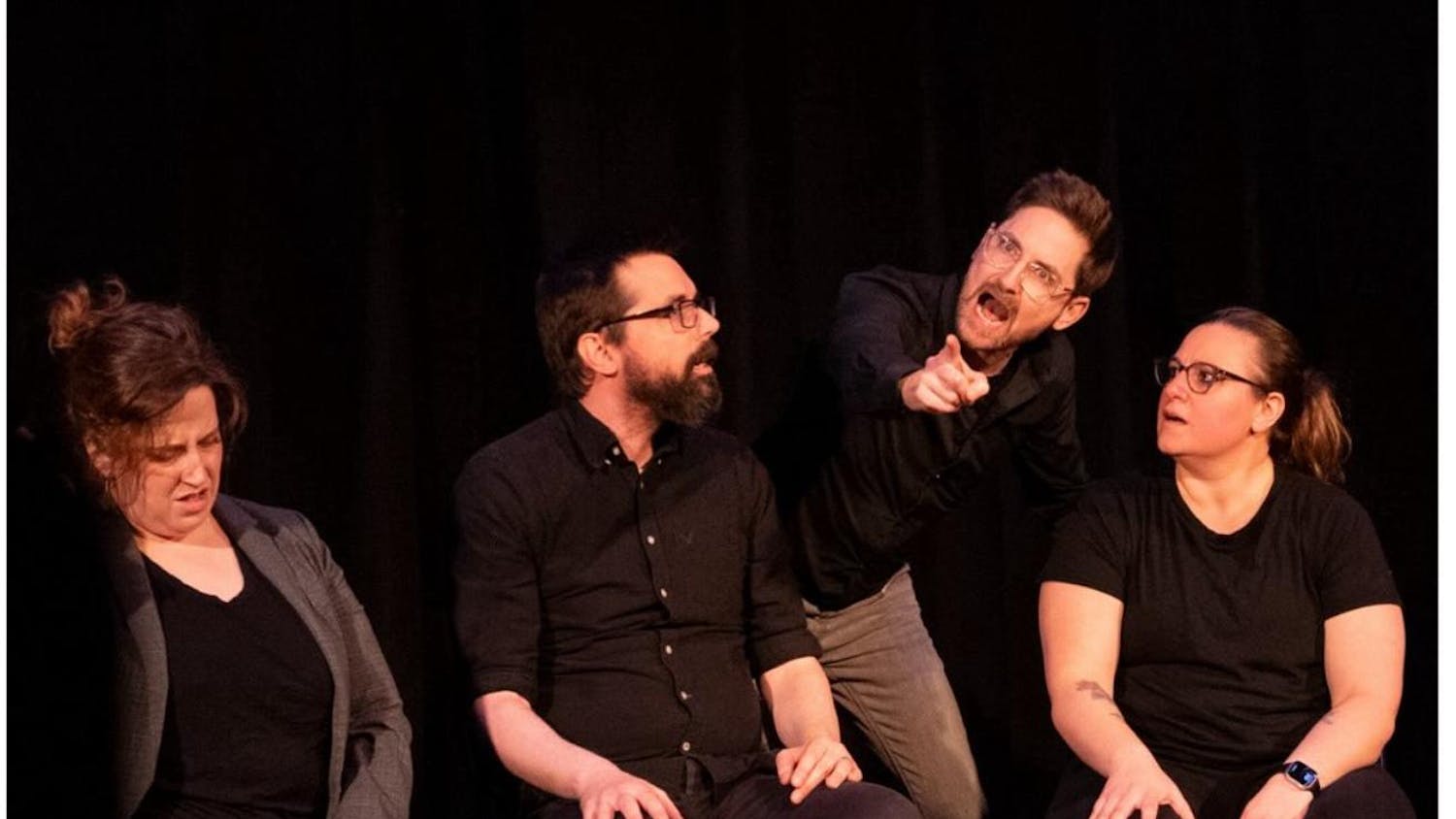Long spoken of as the unfilmable graphic novel, Alan Moore and Dave Gibbons' comic masterpiece "Watchmen" (2009) was recently brought to theaters by Zack Snyder, director of the imaginative and successful "300" (2006). Known for his reverence of the superhero genre, Snyder walks a thin line between pleasing the legions of fanboys and girls who hold the source material sacred and creating a marketable, successful feature. To bring the novel to life, Snyder took some cues from the online community. For instance, he directed his casting crew to consider forums on the Internet Movie Database that threw around suggestions for which up-and-coming actors would be suitable for different roles in the film. Recently, the Daily sat down with Snyder to discuss his interest in the "Watchmen," the events that led to the creation of the film, the reasons behind the changes that he made and his hopes for its reception. Question: How did you go about getting the film? Zack Snyder: The studio actually called me. I was doing post on "300," and I got a call, and they had a script for a comic book they bought called "Watchmen," and I don't think they actually knew much about it. But they thought, "Oh, Zack loves comic books, so he'll love this." But it was strange because I don't think they realized, you know, how crazy it was. Q: Do you think there's anything specifically political you want to say with "Watchmen?" ZS: I think the thing that's interesting with "Watchmen" is ... it does talk about superhero politics, and they're similar in the sense that ... what we learn from the graphic novel and hopefully from the movie is that the morality of policing your neighbors or the morality of being a vigilante with superheroes is a slippery slope. The movie sort of asks: Who polices the police? Who watches the watchers? Who governs the government? Or, who gods God, you know? Those are, to me, the questions of "Watchmen," and I think they are political. I think it also takes on ... American popular culture and sort of looks at America generally. You know, Alan Moore is English, and he's sort of looking at America generally through distance and time, and it's interesting how the more things change, the more they stay the same. Q: Can you talk about Alan Moore at all? ZS: Yeah, I can talk about him. I'm a giant fan of Alan Moore's. When I came on to the project ... the first question I asked was "Okay, when do we get to go talk to Alan Moore?" and I was greeted with the reply, "Umm, we don't get to talk to Alan Moore. Alan Moore has famously divorced himself from our motion picture and, yeah, you don't get to talk to him." That bummed me out because I thought that was how ... it seemed to me would be the easy way to do the movie. Since then, I've just had to flounder through my own experiences. In some ways, maybe it's a truer experience for the viewer. What I think was I tried to make the movie based on the experiences from when I first read the graphic novel back in '88. I'm a huge fan of Alan's, and he's asked that I try not to make any assumptions about what he thinks and not to contact him, so that's what I plan to do. Q: In what ways did Dave Gibbons, artist of the comic, influence the direction of the film? ZS: Someone asked me "Did he help you make the movie?" and I mean, he wasn't there on a day-to-day basis helping, but he did do ... thousands of drawings that helped me, so in a lot of ways, Dave is the visual author of the movie. If you think about the movie like a normal book, Dave becomes the imagination, in some ways, of the reader. I think that that's an amazing gift that he gave the movie because the movie is not only the texture of what Alan wrote, but it's also the mood that the drawings of Dave Gibbons did that I tried to get into the movie. Q: How did you approach keeping the things that you did in the movie and changing what you did? A: I guess the way I approached that was that there were certain sorts of things that I really wanted to get at ... especially the Comedian, the Comedian's funeral, Manhattan on Mars, Rorschach's interrogation and then the final conflict -- what we like to call "Mount Olympus," or the discussion of nature's plan. These are the big things that I tried to get at. Changes went to pulling up the story to get at those things. We've also changed the end, changed the device employed. The reason we did it was that we really didn't want to spend that time to explain [the end] because we would have to lose a lot of character. And also, I think, the concept that Adrian [Veidt, the world's smartest man] finds the thing we blame, the thing that we have to divorce from our lives, that being God. I just found that elegant and interesting.
More from The Tufts Daily
Catch up on 'The Fall-Off'
By
Isadora Alexis
| February 12
From GNX to DtMF: A defining Grammy night
By
Makens Joseph
| February 12





